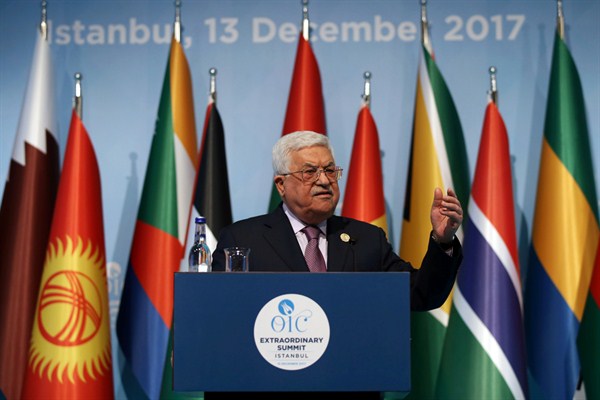No doubt shocked by U.S. President Donald Trump’s decision earlier this month to carry out his campaign promise to recognize Jerusalem as the capital of Israel, Mahmoud Abbas has been scrambling for an appropriate response. His initial reaction was to slam the decision, declaring that “the United States has become no longer qualified to sponsor the peace process.”
Since then, he has shuttled between Middle Eastern capitals drumming up opposition to the move. But beyond statements of indignation, it is not clear that Abbas has considered any real shifts in Palestinian strategy.
The Palestinian Authority will “remain committed to the two-state solution and to the principle of diplomacy as an approach, but will no longer accept the U.S. as the sponsor or mediator for this political process,” says Ghassan Khatib, a lecturer on contemporary Middle East politics at Birzeit University in the West Bank and a former minister in the Palestinian Authority.

